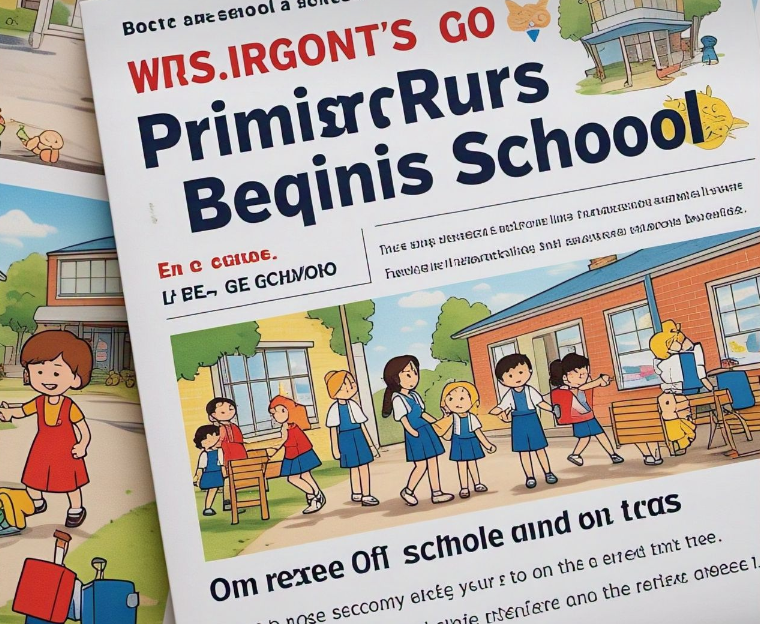Primary school is where children start their educational journey, and it is one of the most important stages in their learning. From reading and writing to understanding basic math, primary school helps young minds grow and develop important skills. In this article, we will take a look at everything about primary school—what to expect, why it’s important, and how it prepares kids for their future education.
Starting primary school is a big step for both children and parents. It’s a time full of excitement and sometimes nerves, as children make new friends, learn new things, and start their lifelong journey of learning. Whether you’re a parent looking for information or a student about to enter primary school, this guide will help you understand what primary school is all about.
What is Primary School? A Simple Overview for Parents and Kids
Primary school is the first step in a child’s education. It is where children begin their formal learning journey, usually around the age of five or six. In primary school, students start to build important skills in subjects like math, reading, and science. It’s an exciting time because kids start to understand the world around them in a new way.
In primary school, students learn at their own pace. Teachers help them with reading, writing, and solving problems. It’s a place where children discover new things every day, from making new friends to learning how to share and cooperate with others.
Parents often wonder what happens in primary school. The focus is on developing foundational skills. Kids learn how to communicate, think critically, and explore different subjects like art, history, and more. Primary school prepares children for the next level of education.
The Importance of Primary School in Child Development
Primary school plays a crucial role in a child’s development. This is where they learn the basics that they will build on for the rest of their lives. Early education helps children develop both academic and social skills.
- Academic Growth: In primary school, kids start to learn reading, writing, and basic math. These skills are important because they form the base for more advanced learning in later grades.
- Social Skills: School helps children learn how to interact with others. They make friends, learn to work in teams, and understand how to resolve conflicts.
- Confidence Building: When children succeed in school, it boosts their confidence. The feeling of learning something new or solving a problem helps children believe in themselves.
Without the foundation provided by primary school, it would be difficult for kids to succeed in higher education and beyond. It’s an essential part of every child’s journey toward success.
How Primary School Shapes a Child’s Future Learning Journey
Primary school is not just about academics. It helps children grow as individuals and builds the foundation for their future learning. It’s a place where children begin to explore their interests and develop new skills that will help them throughout life.
Primary school introduces kids to subjects like math, science, reading, and writing. These subjects will continue to be important as they move through school. But more than that, primary school teaches children how to think and learn on their own.
By developing strong study habits, kids become better prepared for middle and high school. Primary school also gives them the opportunity to discover their passions. Whether it’s reading, drawing, or sports, children find areas they enjoy and can pursue in the future.
What to Expect in Your First Year of Primary School
Starting primary school can be both exciting and a little scary. Children will experience many new things during their first year. From meeting new friends to learning new subjects, the first year is full of adventure.
In the first year of primary school, children will be introduced to basic reading and math concepts. They will learn the alphabet, how to write their name, and simple math problems like addition and subtraction.
- Classroom Activities: Children will do a lot of fun learning activities like drawing, singing, and playing educational games. These activities help children get comfortable with the school environment.
- Learning Through Play: A big part of the first year is play. Kids learn by doing, and many teachers use play-based learning to help children understand new ideas.
It’s important for parents to be supportive and encourage their kids to stay positive about their new experiences.
How Primary School Helps Kids Develop Social Skills
One of the most important things kids learn in primary school is how to get along with others. Social skills are essential for life, and primary school provides plenty of opportunities to practice them.
Children will meet new classmates and make new friends. They will learn how to work together in groups, share toys, and communicate with others. Social skills help children become more confident and comfortable in different situations.
- Friendship Building: In primary school, kids learn how to make and keep friends. This is an important life skill that helps them as they grow older.
- Teamwork and Cooperation: Children learn how to work in teams and cooperate with classmates to complete tasks. This is important in both school and future jobs.
By teaching kids how to relate to others, primary school helps children develop relationships that will last a lifetime.
Conclusion
Primary school is an exciting time for both children and parents. It’s the place where kids start learning the basics, like reading and math, and also where they begin to make new friends. It’s a journey that helps kids grow and become ready for the next big steps in their education. The things they learn in primary school stay with them for the rest of their lives.
Parents play an important role in helping their kids feel happy and excited about primary school. By supporting their child’s learning and encouraging them to explore new things, parents can help make the primary school experience even better. Whether it’s helping with homework or just listening to their day, every little thing makes a difference.




